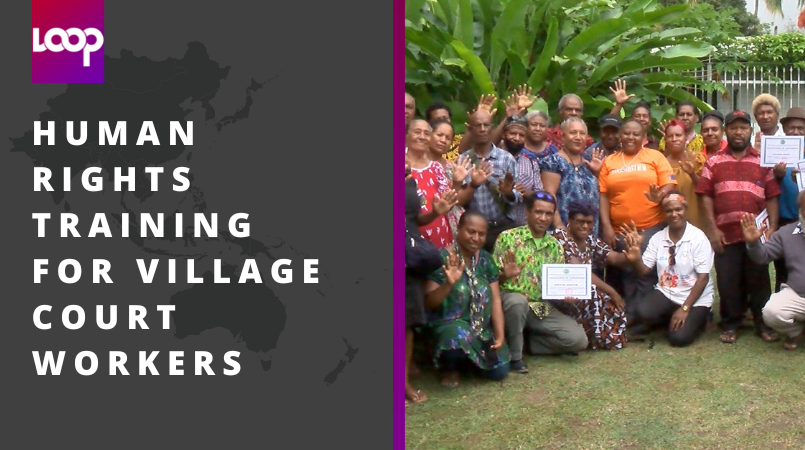
More than 20 NCD Village Court magistrates, chairpersons and community leaders received Human Rights training, thanks to the PNG Human Right Defenders’ Association with funding assistance from UNWomen.
The training was held at the Holy Family Anglican Church in NCD from Wednesday 11th to Friday 13th January, ending with a small graduation ceremony. It was an exciting experience for the participants as this is the very first time they learnt their role as Human Rights Defenders and what they can do to minimize the problems at the village/community level.
PNG HR Defenders Association Director, Linda Tule expressed contentment and heartfelt appreciation to UN Women for supporting them in providing this training and the Training of Trainers they received towards the end of 2022.
Tule said this training is the first of two training planned after completion of a Training of Trainers the HR Defenders facilitators received last year. She said she continues to Daru, Western Province on Monday 16th January where Village Courts magistrates and chairpersons are waiting for a similar training.
Topics covered were; Village Court Experiences, What is Human Rights, Family Protection Act/Lukautim Pikinini Act, Terms and Definitions of GBV, Gender Roles and Activities, Roles of FSVAC, Data Collection, Principle Guidelines of assisting Survivors of GBV & Referral Pathways, Basics of Human Rights, UN Convention on the Rights of every Child and HRDA Data Forms.
Trainers included the Director of PNG HR Defenders Association, Linda Tule, Peter Simbago, Elsie Takori, Lavinia Raula, Cathy Amaiu, Josephine John and Ruth Kendino.
Chairman of NCD Village Courts, Kaupa Kua explained that the training was to enhance the skills of the Village Court officials as Human Rights Defenders.
“When you look at it, it’s a human being that’s in a problem. They have a right and that right has to be recognized. Most of the times, their rights been deprived. Therefore with they attending this course, it enhances their capabilities, so that they will serve or assist whoever in the problem.”
With understanding, they will know the right paths to refer the different Human Rights abuse to the right source to get proper assistance.
He added that what they learnt about data collection was valuable as it also gives them evidence to show to authorities when they are presenting their reports for change or requests for assistance.
“Data is a source of information. It’s all about giving them the number. The statistics connecting the cases. It’s like in a tally that you submit information to for appropriate course of action and also for improvement.” Kua added.
